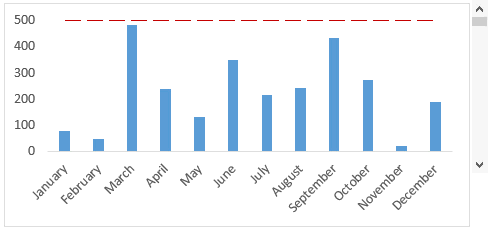Efektivitas Model Pembelajaran Problem Based Learning (PBL) Berbantu Lembar Kerja Peserta Didik terhadap Hasil Belajar PKn Kelas IV SDN 01 Dasan Borok
Abstract
This study aims to determine the effectiveness of the Problem Based Learning (PBL) learning model assisted by student worksheets on the Civics learning outcomes of fourth grade students of SDN 01 Dasan Borok. This research method uses descriptive quantitative with the type of research is experimental research. In this experimental study using a pre-experimental design, this study involved one class as the experimental and treatment class. The form of design used is One-Group Pre-test Post-test Design with one treatment. The subjects in this study were fourth grade students at SDN 01 Dasan Borok for the academic year 2021/2022, totaling 13 students. Data collection techniques in the form of learning outcomes tests, observation of student activities and student response questionnaires. Based on the results of descriptive analysis after being given treatment (post-test), the average value was 82.3. So that the average student learning outcomes after being given treatment the KKM value is categorized as complete. The average value of N-Gain pre-test and post-test is in the range of g≥0.79 so that the effectiveness is in the high category. Meanwhile, classical completeness (KK) for the post-test was 84.6%. While the percentage of student activity is in the range of 69.2%≤A<80% so that the effectiveness is categorized as active. The percentage of student responses is in the range of 70%≤RS<84.6% so that the effectiveness is categorized as positive. So it can be concluded that the Problem Based Learning (PBL) learning model assisted by student worksheets is effective on the learning outcomes of Civics for fourth grade students at SDN 01 Dasan Borok.
References
Aryanti. (2020). Inovasi Pembelajaran Matematika di SD (Problem Based Learning Berbasis Scaffolding Pemodelan Komunikasi Matematis). Yogyakarta: Deepublish Publisher.
Haryanti, Y.D. (2017). Model problem based learning membangun kemampuan berpikir kritis siswa sekolah dasar. Jurnal Cakrawala Pendas, 3(2).
Pujiastuti, E. R. N. A. (2022). Penerapan Model Problem Based Learning (PBL) dalam Meningkatkan Hasil Belajar Siswa pada Mata Pelajaran PKn di Kelas IV SD Negeri Labuang Baji 1 Makassar. Makassar: UMM.
Purwanto. (2010). Evaluasi Hasil Belajar. Yogyakarta: Pustaka Belajar.
Rahayuningtyas, W. (2011). Penerapan model problem based learning (PBL) untuk meningkatkan motivasi dan hasil belajar siswa pada mata pelajaran PKn kelas V SDN Jatimulyo 1 Kota Malang (Doctoral dissertation, Universitas Negeri Malang).
Sugiyono. (2017). Metode Penelitian Kuantitaif, Kualitatif, dan R&D. Bandung: Penerbit Alfabeta.
Sugiyono. (2019). Metode Penelitian Kuantitaif, Kualitatif, dan R&D. Bandung: Penerbit Alfabeta.
Trianto. (2011). Model Pembelajaran Terpadu. Jakarta: Bumi Aksara.
Zaahirah, W. (2014). Penerapan Model Pembelajaran Kooperatif Tipe Two Stay Two Stay pada Materi Luas Permukaan Balok. MATHEdunesa, 3(3), 252-258.










